Coronavirus: Fresh fears as lockdowns begin to ease in Australia and around the world
Australia’s deputy chief medical officer has issued a strong warning over the “serious risks” of over-crowding as Scott Morrison warns Australians to “remain on their guard”.
Coronavirus
Don't miss out on the headlines from Coronavirus. Followed categories will be added to My News.
PM says Australia ‘has a long way to go’
Donald Trump ‘spooked’ by White House cases
Cases spread in Germany
Johnson urges Brits to ‘get back to work’
Australia’s deputy chief medical officer has issued a strong warning over the “serious risks” of over-crowding as states ease social restrictions.
Professor Michael Kidd warned it was not a time to become complacent.
congregating more.
“We have very serious risks if overcrowding starts to occur,” he told reporters.
“COVID-19 is still out there in our country.
“This is not a time to become complacent,” he said.
“Each of us needs to continue our strong commitment to maintaining physical distancing of 1.5m from other people whenever we are outside of our homes, and that means avoiding crowds whenever possible.
“If you see a crowd, please go in the other direction.
“Going into to a crowded workplace at this time would not be sensible.”
Professor Kidd said over 5.5 million people had downloaded the COVID-Safe app.
ALBO CALLS FOR RESHAPING THE ECONOMY
Anthony Albanese believes the coronavirus has handed Australia a once-in-a-generation chance to reshape its economy and the nation must seize the opportunity.
The Labor leader wants the country to emerge from the health crisis with a stronger sense of society and use that communal spirit to shape the economic recovery.
“The pandemic has exposed another inconvenient truth: we are living in uncertain times and maybe our economy isn’t as resilient as we like to think,” he told the Labor caucus on Monday.
“The fact is that too much of the risk in our economy has been shifted onto those with the least capacity to manage in tougher times.
“Our economy has become riskier and we need to think through what that means for us all.” The speech comes a day before Treasurer Josh Frydenberg delivers an economic statement to parliament in lieu of the budget that has been pushed back to October.
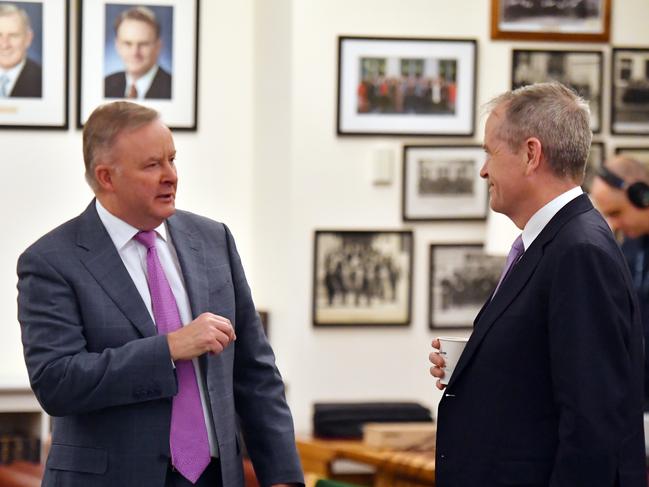
Mr Albanese is critical of the government’s assumption the economy will “snap back”.
And he says it shouldn’t have taken a pandemic for the coalition to have come around to Labor’s point of view on various policy areas.
That includes the need to lift unemployment payments, the vital role of unions, the importance of fast and reliable broadband, and the essential service provided by early childhood educators.
“Let’s not snap back to insecure work, to job seekers stuck in poverty, to scientists being ignored,” he said.
“We must move forward to having not just survived the pandemic, but having learned from it.”
Deputy Labor leader Richard Marles doesn’t believe the coalition has the imagination nor inclination to seize the opportunity on offer.
“Our political opponents come to this with dried up and sterile arguments about government getting out of the way, which is just not going to cut it in terms of taking our nation forward,” he told caucus.
Labor wants to see manufacturing revived, big new infrastructure projects, and a focus on worker rights and more stable jobs.
It is also pushing for government to work with the private sector and superannuation funds to build more social and affordable housing.
PM: ‘WE HAVE A LONG WAY TO GO’
Prime Minister Scott Morrison has warned Australians to “remain on their guard” as the states start to ease coronavirus restrictions.
“The reason we’re opening things up again is not because the virus is beaten. The virus is still out there – it hasn’t gone anywhere – it is still out there,” Mr Morrison said.
“The reason we’re reopening is we put protections in place and it will take us some time to reopen our economy and get it back to a point where it can start supporting Australians again,” he said.
The Prime Minister also said a six-month wage subsidy “lifeline” for people unable to work due to the coronavirus shutdown will be available “for as long as it’s needed“.
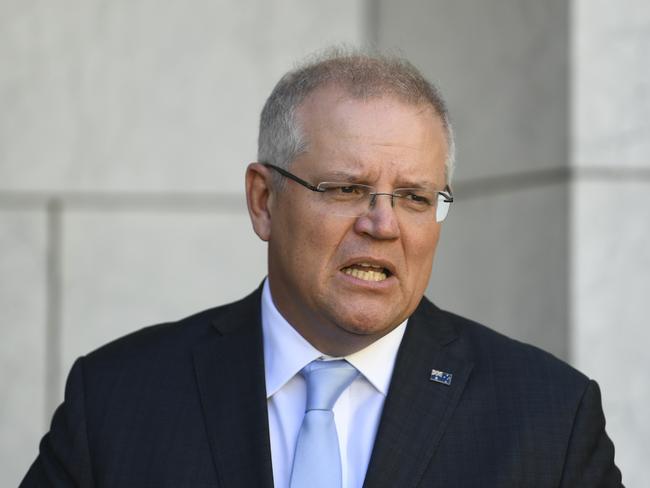
He dismissed suggestions the federal government was contemplating winding up the full $130 billion JobKeeper scheme early, despite stepping up its push to get people back to work and off the subsidy as soon as possible.
“That income support was forthcoming,” he said.
“It was carefully considered. It wasn’t rushed into. It was worked through. It was well designed, and it’s been doing the job. And it will keep doing that job for as long as it’s needed.”
Mr Morrison said he didn’t have a “crystal ball” and reopening the economy was still a “work in progress,” which was why the six-month deadline – ending September 27 – had been set.
“We’re six weeks into a six-month program and at this stage, the uncertainties about the global economy, let alone our own economy, are still very much there,” he said.
“It would be very premature, I think, to get into speculations.”
It comes as some of the first countries to lift lockdowns experienced a surge in cases.
China, where the virus was first detected, reported 14 new cases on Sunday, its first double-digit rise in 10 days.
Eleven of 12 domestic infections were in the northeastern province of Jilin, prompting authorities to raise the threat level in one of its counties, Shulan, to high risk, just days after downgrading all regions to low risk.
Authorities said the Shulan outbreak originated with a 45-year-old woman who had no recent travel or exposure history but spread it to her husband, three sisters and other relatives.
Train services in the county were suspended.
“Epidemic control and prevention is a serious and complicated matter, and local authorities should never be overly optimistic, war-weary or off-guard,” said Jilin Communist Party secretary Bayin Chaolu.
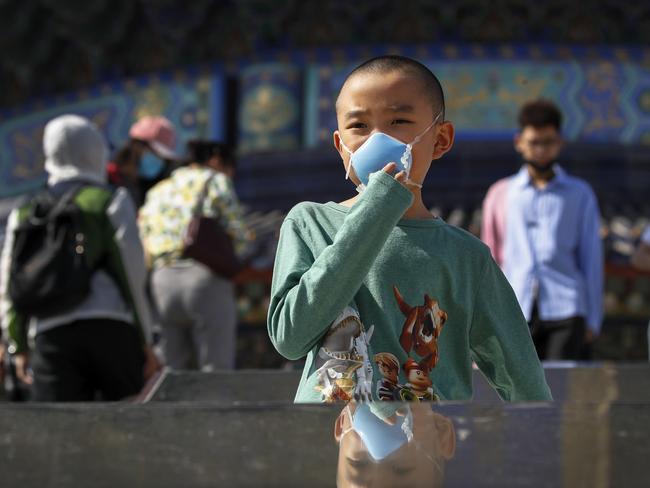
The virus first emerged in Wuhan, a major industrial and transport city in central China, in December.
It has since infected nearly four million people worldwide — claiming more than 270,000 lives — and crippled the global economy.
The total number infected in China is 82,901, with an official death toll of 4633.
No new deaths have been reported for nearly a month.
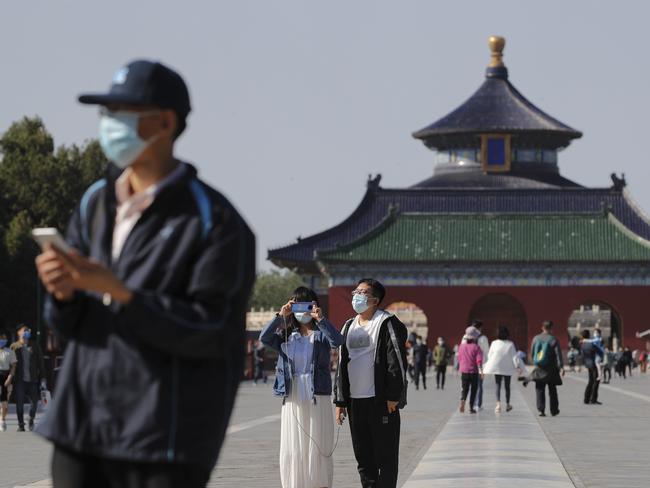
China’s ruling Communist Party imposed a quarantine lockdown on tens of millions of people — first in Wuhan and then the rest of Hubei province — beginning January 23, making Wuhan the first place in the world subjected to draconian restrictions.
Authorities started lifting restrictions in late March.
China has faced criticism both at home and abroad for downplaying the virus and concealing information about the outbreak when it first emerged in Wuhan.
Beijing has insisted it has always shared information with the World Health Organisation and other countries in a timely manner.
A top health official said Saturday, however, that the outbreak exposed “shortcomings” in China’s public healthcare system.
Elsewhere, South Korea reported 34 more cases as new infections linked to nightclubs threaten its hard-won gains against the virus.
It was the first time that South Korea’s daily infections were above 30 in about a month.
It comes as millions of Europeans were preparing for a return to partial normality on Sunday (local time), a day before officials relax some of world’s harshest coronavirus lockdown measures.
Germany, which managed to push new infections below 1000 daily before deciding to loosen restrictions, has seen regional spikes in cases linked to slaughterhouses and nursing homes.
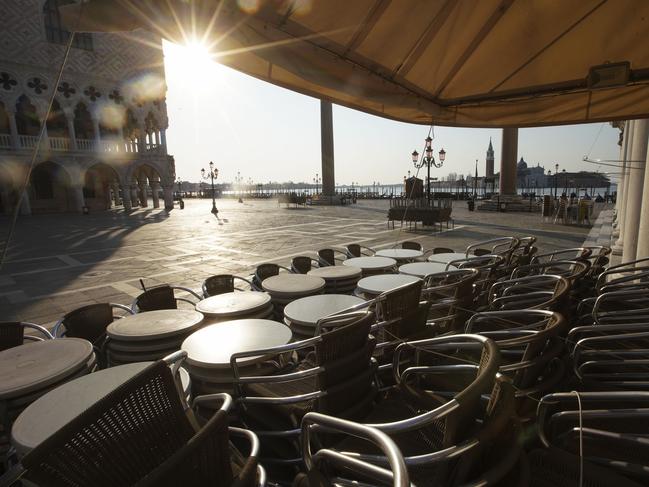
The Robert Koch Institute for public health said Germany’s closely watched reproduction rate (R0) had climbed to 1.1, meaning 10 people with COVID-19 infect on average 11 others.
The RKI has warned that for the infection rate to be deemed under control and slowing down, R0 has to stay below one.
As recently as Wednesday, Germany’s number stood at 0.65.
The RKI cautioned that it was too soon to draw conclusions but said the number of new infections “would need to be watched very closely in the coming days”.
The latest data raised alarm after Mrs Merkel only on Wednesday declared that Germany had left the “first phase” of the pandemic behind it and federal states announced relaxations of social restrictions.
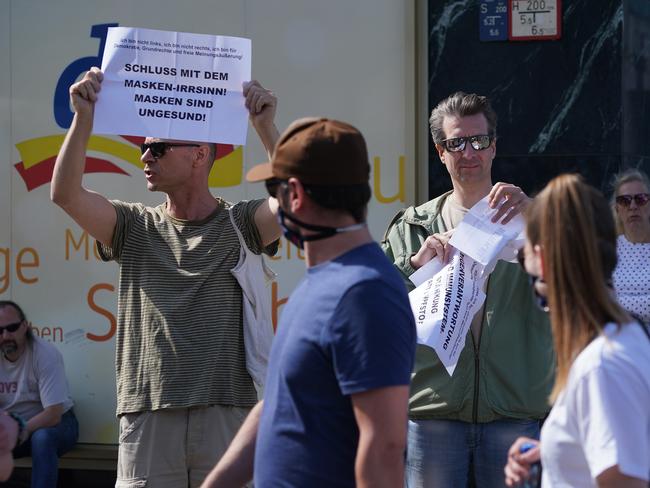
Most shops and playgrounds have reopened, children are gradually returning to classrooms and states are to varying degrees reopening restaurants, gyms and places of worship.
German local authorities have however agreed to pull an “emergency brake” and reimpose social curbs if the infection rate rises above 50 cases per 100,000 residents over a week.
That has already happened in at least three districts in recent days, according to the RKI.
With millions out of work and economies flatlining — including in the United States, where 20 million lost their jobs in April — governments are desperate to reopen, but most are choosing a gradual approach.
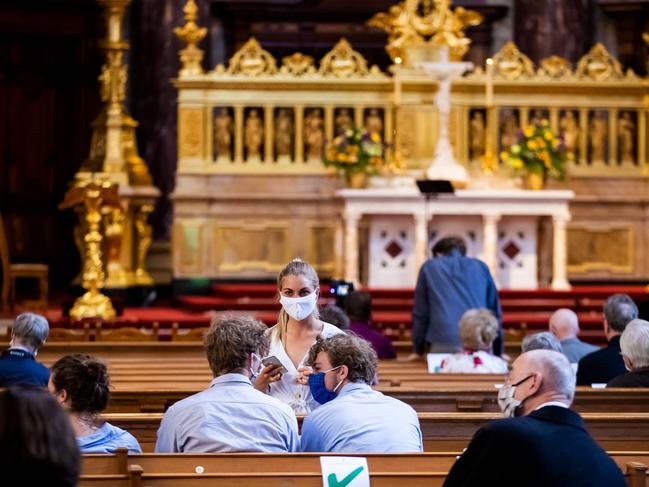
In France, hair salons, clothes shops, florists and bookshops will open again Monday but bars, restaurants, theatres and cinemas remain closed.
Half of Spain’s 47 million people will be able to meet family or friends in gatherings of up to 10 and bars and restaurants with outdoor space can reopen.
European officials have been emboldened by declining death rates — France’s toll of 80 on Saturday was its lowest since early April and Spain’s daily fatalities have dropped below 200.
ALBANESE ON LABOR’S VISION FOR RECOVERY
Opposition Leader Anthony Albanese says the crisis is a once-in-a-political lifetime event that creates a rare opportunity to renew Australia’s federation and reshape its economy.
“The pandemic has exposed another inconvenient truth: we are living in uncertain times and maybe our economy isn’t as resilient as we like to think,” he will say in a speech to the Labor caucus on today.
“The fact is that too much of the risk in our economy has been shifted onto those with the least capacity to manage in tougher times.
“Our economy has become riskier and we need to think through what that means for us all.” Mr Albanese has asked Labor frontbenchers to offer ideas for the recovery.
He will detail some of these in the speech, including a need to revitalise manufacturing using cheap, clean energy and build big infrastructure projects such as high-speed rail.
Another plan Labor is pushing is for government to work with the private sector and superannuation funds to build more social and affordable housing.
Mr Albanese says this has the twin benefits of driving continued construction work in a dwindling sector and helping low-paid, essential workers find affordable rental homes close to their work.
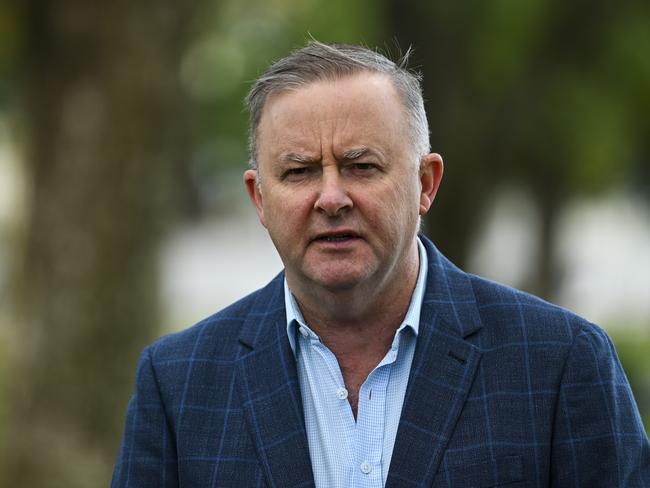
The speech comes a day before Treasurer Josh Frydenberg delivers an economic statement to parliament in lieu of the budget that has been pushed back to October.
Mr Albanese is critical of the government’s assumption the economy will “snap back”.
And he says it shouldn’t have taken a pandemic for the coalition to have come around to Labor’s point of view on many areas.
That includes the need to lift unemployment payments, the vital role of unions, the importance of fast and reliable broadband, and the essential service provided by early childhood educators.
“Let’s not snap back to insecure work, to job seekers stuck in poverty, to scientists being ignored,” he will say.
“We must move forward to having not just survived the pandemic, but having learned from it.”
Today’s speech is the fifth in a series of vision statements Mr Albanese is using to put his stamp on the Labor leadership and reshape the party and its policies.
It comes as Deloitte’s Budget Monitor predicts a deficit in the nation’s budget to reach $142.1 billion for the 2019/20 financial year due to the coronavirus pandemic.
That’s in stark contrast to the government’s predicted surplus of $5 billion at the time of mid-year budget review last December.
TRUMP ‘SPOOKED’ BY WHITE HOUSE CASES
Donald Trump is reportedly “spooked” by the prevalence of positive coronavirus cases infiltrating the White House with a senior official confirming that people must now be tested before they can get an audience with the US President.
It comes as global coronavirus cases passed four million with more than 280,000 deaths. America has been hardest hit with 1.86 million cases and more than 80,000 deaths.
Vice President Mike Pence is self-isolating after an aide tested positive for the coronavirus last week.
An administration official said Pence is voluntarily limiting his exposure to other people.
He has repeatedly tested negative for COVID-19 since his exposure but is following the advice of medical officials.
“Vice President Pence will continue to follow the advice of the White House Medical Unit and is not in quarantine,” said spokesman Devin O’Malley.
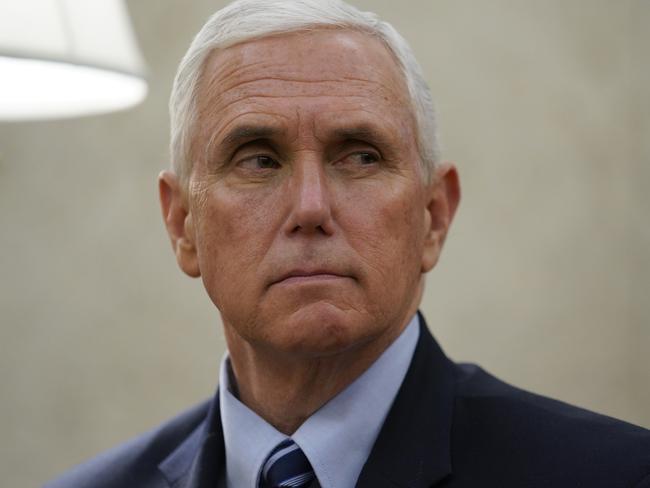
“Additionally, Vice-President Pence has tested negative every single day and plans to be at the White House tomorrow.”
It comes after three top US government officials heading America’s virus response, including top doc Dr Anthony Fauci, have begun two weeks of self-quarantine after two members of the White House staff — Katie Miller, the spokeswoman for Vice President Mike Pence, and one of Mr Trump’s personal valets — tested positive.
But others who came into contact with Ms Miller and the valet are continuing to report to work at the White House.
“It is scary to go to work,” Kevin Hassett, a top economic adviser to Mr Trump said on US TV on Sunday (local time).
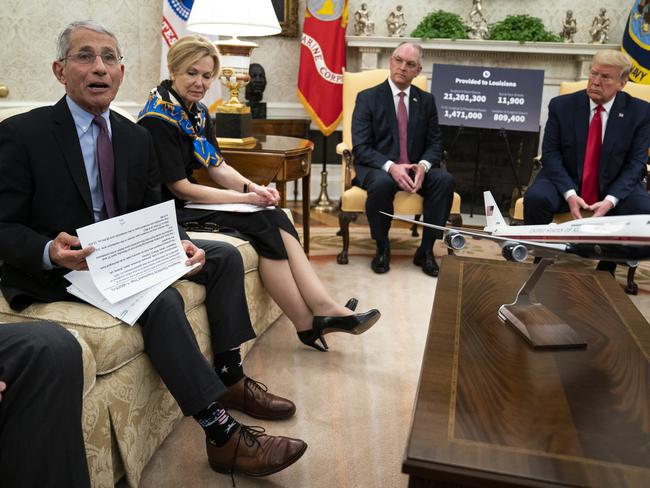
Mr Hassett said he wore a mask at times at the White House, but said that “I think that I’d be a lot safer if I was sitting at home than I would be going to the West Wing.”
“It’s a small, crowded place. It’s, you know, it’s a little bit risky. But you have to do it because you have to serve your country,” he said.
Mr Trump himself continues not to wear a mask when meeting with groups of people.
But, according to US media reports, a senior administration official said the president was “spooked” that his valet, who is among those who serve him food, had not been wearing a mask.
And he was irritated to learn that Ms Miller tested positive and has been growing annoyed with people who get too close to him, the official told the New York Times.
“To get in with the president, you have to test negative,” Mr Hassett said on US TV on Sunday (local time).
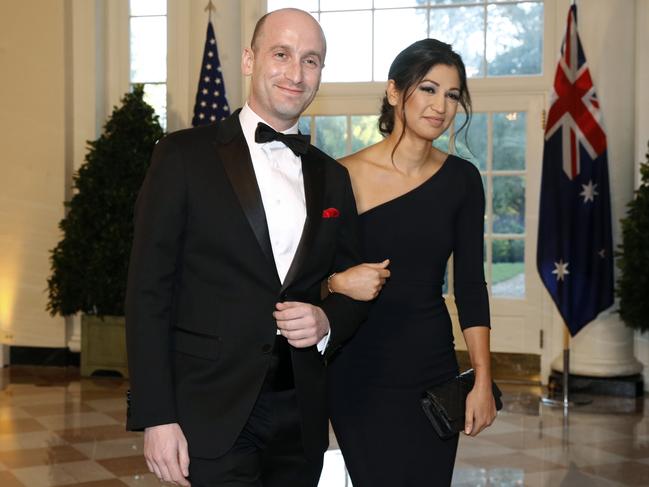
Dr Fauci said that he, too, had begun a “modified quarantine” after what he called a “low risk” contact with an infected staff member.
Stephen Miller, one of the president’s closest advisers and Ms Miller’s husband, is also not expected to come into the White House for the foreseeable future, according to people familiar with his plans.
Mr Miller tested negative for the virus on Friday after his wife’s positive diagnosis.
It comes as Mr Trump continues to call for the economy to be reopened even as the virus is still claiming well over 1000 lives daily in the US.
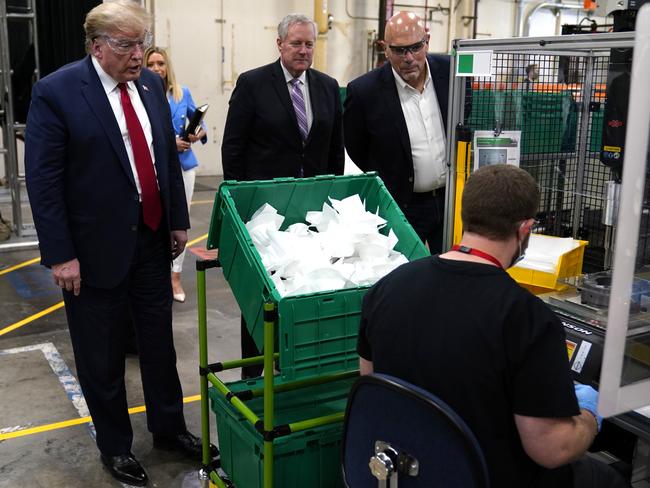
TRUMP RIPS OBAMA OVER SWINE FLU ‘DISASTER’
Meanwhile, Mr Trump went on the attack over the Obama administration’s handling of the swine flu pandemic — after it was revealed that the former commander in chief called his successor’s approach to the coronavirus crisis an “absolute chaotic disaster.
“We are getting great marks for the handling of the coronavirus pandemic, especially the very early BAN of people from China, the infectious source, entering the USA,” the president said on Twitter on Sunday morning (local time).
“Compare that to the Obama/Sleepy Joe disaster known as H1N1 Swine Flu. Poor marks, bad polls – didn’t have a clue!”
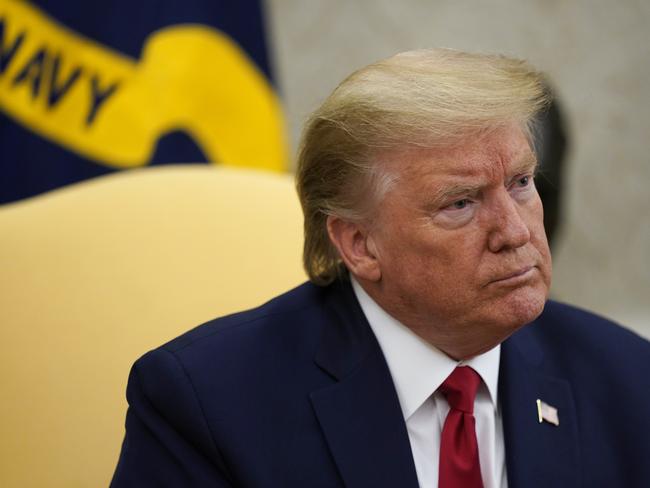
In a video chat with supporters last Friday, Mr Obama criticised Mr Trump’s handling of the coronavirus, reports the New York Post.
“It has been an absolute chaotic disaster,” Mr Obama said, “when that mindset of ‘what’s in it for me’ and ‘to heck with everybody else’ — when that mindset is operationalised in our government.”
During the 2009 swine flu pandemic 12,469 people died in the US, the Centres for Disease Control and Prevention estimated.
According to Johns Hopkins University, 78,799 Americans have died of the coronavirus so far.
In a series of tweets, the president also thanked US Vice President Mike Pence for tweeting the number of medical supplies the Federal Emergency Management Agency distributed to Iowa.
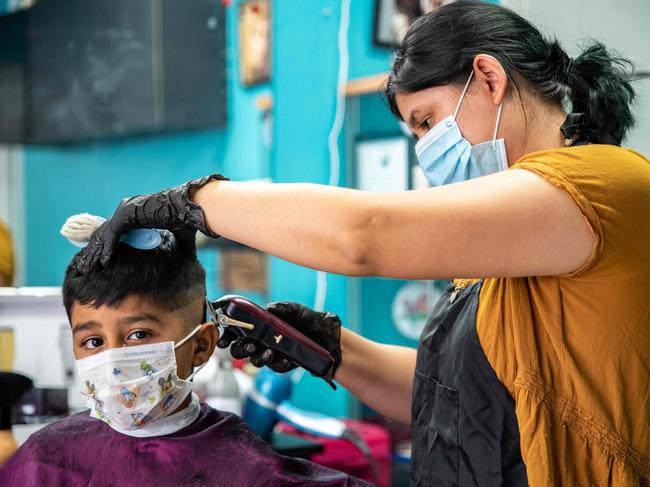
“Under President @realDonaldTrump’s decisive leadership, @fema has been able to deliver millions of supplies and PPE to the people of Iowa as we continue our whole-of-America
response to the coronavirus,” Mr Pence, who is heading up the White House coronavirus task force, tweeted on Friday.
And with California beginning to reopen parks, Mr Trump noted that his golf course is open for business.
“So great to see our Country starting to open up again!” the president tweeted, linking to a posting from Trump Los Angeles.
“Game on! We are thrilled to announce the reopening of @trumpgolfla beginning Saturday May 9th! We look forward to welcoming you back Book your tee time now!,” the Trump National Golf Club Los Angeles tweeted on Friday.
California announced that it would begin opening parks, hiking trails, beaches and golf courses and urged people to follow social distancing guidelines and wear masks.
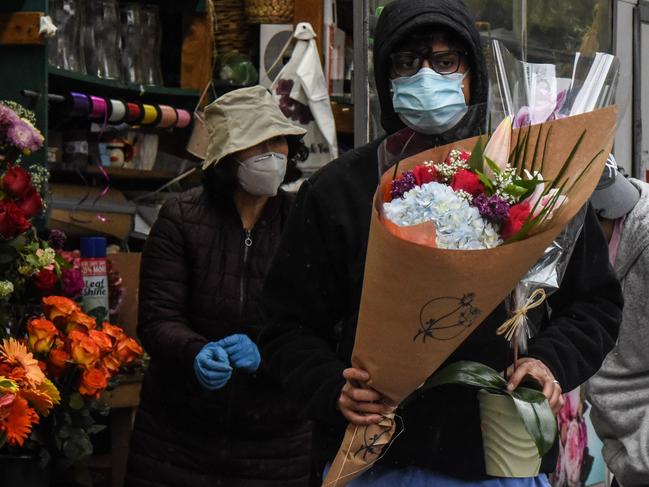
JOHNSON REVEALS NEW PLANS
It comes as British Prime Minister Boris Johnson on Sunday (local time) announced a phased plan to ease a nationwide coronavirus lockdown, with schools and shops to begin opening from June 1 – as long as infection rates stay low.
In a televised address, Mr Johnson also announced plans to introduce quarantine for people arriving in Britain by air to prevent new infections from abroad.
Almost seven weeks after a nationwide stay-at-home order was put in place, more than 31,800 have died during the outbreak in Britain – the worst toll in Europe and second only to the United States.
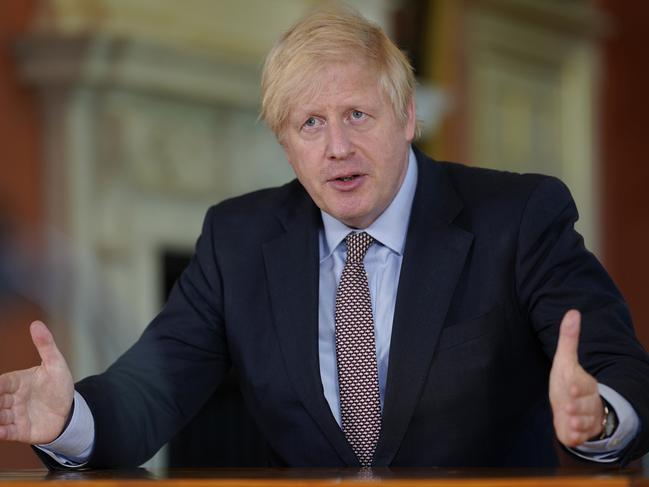
Mr Johnson, who himself spent a week in hospital with COVID-19, said the measures had come “at a colossal cost to our way of life” but said it would be “madness” to squander the progress by moving too soon.
“This is not the time simply to end the lockdown this week,” the 55-year-old said, but unveiled a “conditional plan” to ease the measures in England in the months ahead.
Starting this week, he said the government would be “actively encouraging” people to return to work where they could not do so from home, for example in manufacturing or construction.
Unlimited outdoor exercise would be allowed from Wednesday, with sports such as golf, tennis and fishing permitted as long as they only involved members of the same household.
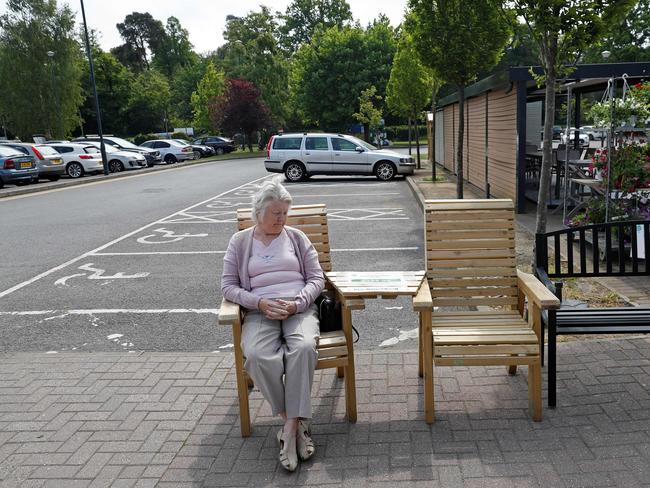
In the second phase, Johnson said nurseries and children up to the age of 11 could start to return to school from June 1 at the earliest, and some non-essential shops could reopen.
By July, “we will hope to re-open at least some of the hospitality industry and other public places” that could enforce social distancing, for example cafes in parks.
However, officials warned that pubs were not likely to reopen for months, while older schoolchildren were unlikely to see any return to classes until September.
Infection rates will also be closely monitored under a new alert system, which will build upon existing moves to ramp up testing and contact tracing.
“If there are outbreaks, if there are problems, we will not hesitate to put on the brakes,” Mr Johnson said.
“We have been through the initial peak, but it is coming down the mountain that is often more dangerous.”
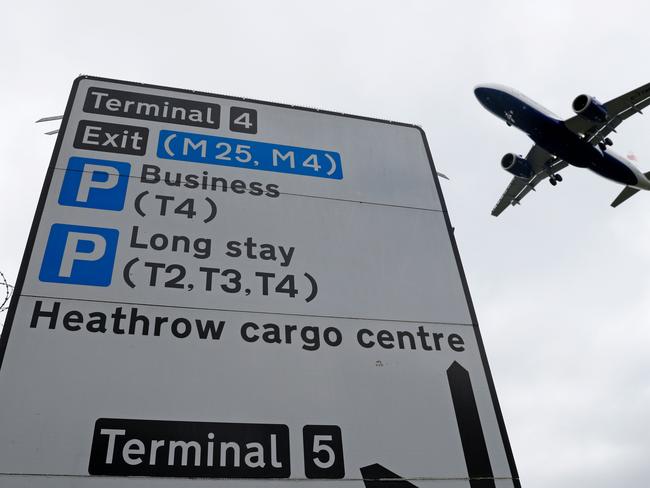
RUSSIA AND BRAZIL NEW HOTSPOTS
But as some of the hardest-hit countries prepare to relax their restrictions, other global hot spots are emerging, Russia and Brazil both passing grim milestones on Sunday (local time).
Russia’s caseload surpassed 200,000 and is expected to become the highest figure in Europe within days, but officials say it shows the effectiveness of Russia’s testing regime rather than the severity of the outbreak.
The number of deaths in Russia remains relatively low at just over 1900. For Brazil, the signs are more ominous.
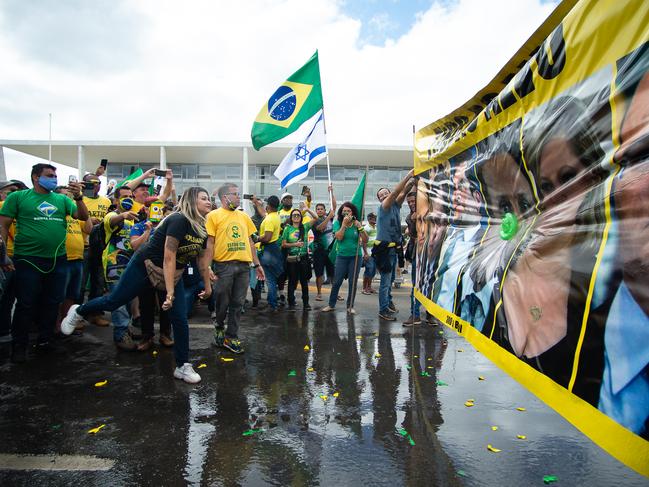
Officials confirmed more than 10,000 had now died in the hardest-hit Latin American country but scientists warn that the real figures could be many times higher, given the lack of widespread testing.
In a sign that officials are not yet facing up to the crisis, President Jair Bolsonaro, who has likened the coronavirus to a “little flu”, was reportedly seen jet skiing.
Brazil is among those countries whose economies have been paralysed by the pandemic — the International Monetary Fund (IMF) predicting a 5.3 per cent contraction in output this year.
AUSSIE BUSINESSES TOLD TO TURN AWAY THE SICK
Sick people with flu-like symptoms must be turned away from any shop or workplace if they refuse to take “personal responsibility” and stay home when unwell.
Australia’s Chief Medical Officer Professor Brendan Murphy said he would “protect” and “defend” any employer or business owner who refused entry to someone who was visibly sick during the coronavirus pandemic.
“If one of your colleagues or an employee or a client turns up, you have every right to say, go away, I am not going to let you in, I am not going to treat you … unless you’re a doctor, of course,” he said.
Prof Murphy said people needed to take responsibility for their own actions and change the “mentality” of pushing through an illness.
“Everyone has to practise staying at home when you are unwell,” he said.
“All of us over our lives have been, on occasions, wanting to soldier on with a cold and a flu-like illness.
“We cannot do that anymore.”
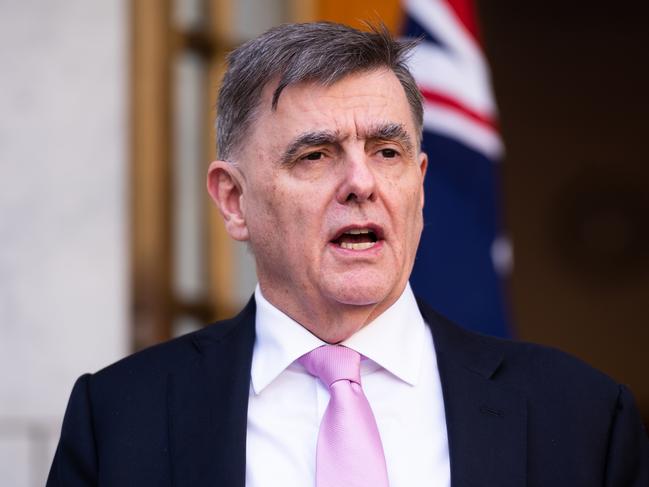
Prof Murphy said while the current advice was for people to continue to work from home where possible, experts were preparing strategies for the expected increase in public transport use as the economy reopens.
“Public transport authorities have introduced a very enhanced cleaning, we need to have hand sanitiser available,” he said.
“One of the most important things is to reduce the density … social distancing is not possible when you are crowded.
Prof Murphy said health officials were “keen” for employers to look at staggered start and finish time.
“I think we have to think about a very different way of people may be starting at work, some starting at seven o’clock (through to) 10 o’clock and people finishing at different times,” he said.
“We have to think differently about that so there is a lot of planning going.”
Australia’s coronavirus tally has increased by just 14 cases to 6941.
There have been no deaths in the last 24 hours and 14 people are currently on ventilators in intensive care.
Prof Murphy said his key message as restrictions eased was for Australians to continue to take “personal responsibility” for social distancing so younger people did not put the vulnerable population at risk.
“It is those mobile, fit adults, the people from 22 to 70, in the main, some in the 70s as well … that is the age group that is transmitting this virus,” he said.
“That is the group that we have to make sure we control the virus in.”
Prof Murphy said the 97 deaths in Australia from coronavirus were overwhelming very elderly people.
“People have said to me, why don’t you just protect really carefully all those with chronic conditions and the elderly,” he said.
“(But) as we have seen already, that’s just not possible, if you’ve got widespread community transmission.”
Prof Murphy said because the virus was “incredibly infectious” it would be inevitable the disease would spread to aged care, which could cause “terrible problems”.
“So we can’t allow significant community transmission if we want to protect our elderly,” he said.
Prof Murphy said relying on police and other authorities to enforce social distancing would never be as effective as people simply deciding to follow the rules themselves.
“It is as much about the rules and regulations as it is about personal responsibility,” he said.
“So if you are going to a shopping centre to buy something, go and buy something, but don’t hang around the shopping centre for half-an-hour mingling for no purpose. Go home.”
He said if people did not behave “in a way that is respectful of social distancing norms”, Australia could again see widespread transmission of the coronavirus.
Prime Minister Scott Morrison and state and territory leaders agreed on Friday to a three-step plan to restart business and community activities. However, the states and territories are set to move through the three stages at different speeds, depending on their health situation and local conditions.
‘NONSENSE’: COVID-19 MISINFORMATION SLAMMED
Professor Murphy also hit out as “silly misinformation” following a protest in Victoria where some attendees pushed information that 5G technology was causing the spread of the coronavirus.
“Unfortunately there is a lot of very silly misinformation out there,” he said.
“There is absolutely no evidence about 5G doing anything in the coronavirus space. I have unfortunately received a lot of communication from these conspiracy theorists myself. It is complete nonsense. 5G has got nothing at all to do with coronavirus.”
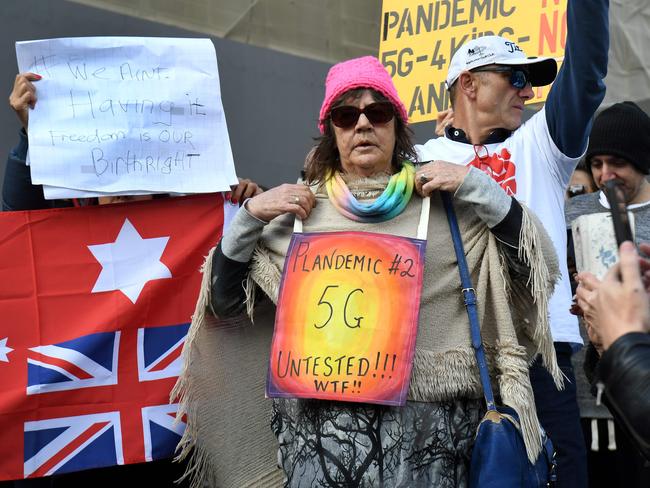
Prof Murphy added authorities wanted to understand how the virus transmitted so rapidly as calls grow for an independent inquiry into the origins of the coronavirus.
“We have seen lots of what we call zoonotic viruses (those that come from an animal species) in the past,” he said.
“We have seen avian flu, we have seen SARS, we have seen MERS. But almost none of them developed this capacity to spread rapidly from human to human like coronavirus.
“So we want to understand what animal that came from. Was there an intermediate (host) … How it mutated, so that it could spread across humans. Obviously everybody wants to know what are things that each and every country could have done better to stop this widespread pandemic.”
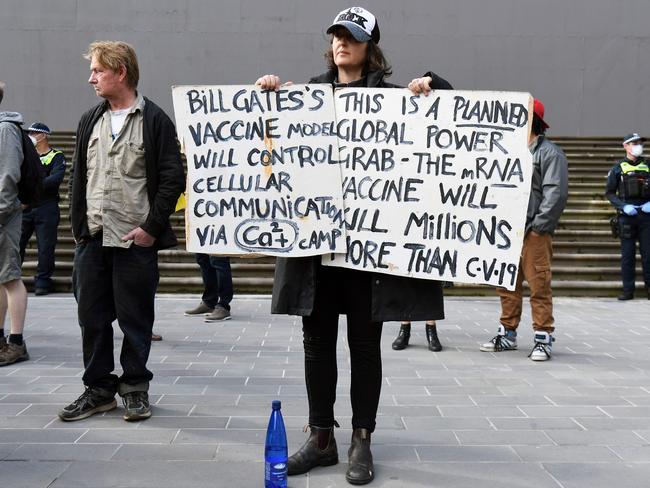
He said Australia had received a lot of medical information about COVID-19 from China.
“The Chinese medical and scientific community has been readily sharing information and collaborating scientifically over the last few months,” he said.
“I think they will continue to do so, they are reporting to the WHO, as are we, and the WHO is going to do this scientific investigation and I hope it becomes a scientific and health -based investigation looking at lessons to be learned.”
Originally published as Coronavirus: Fresh fears as lockdowns begin to ease in Australia and around the world
